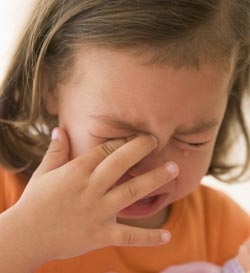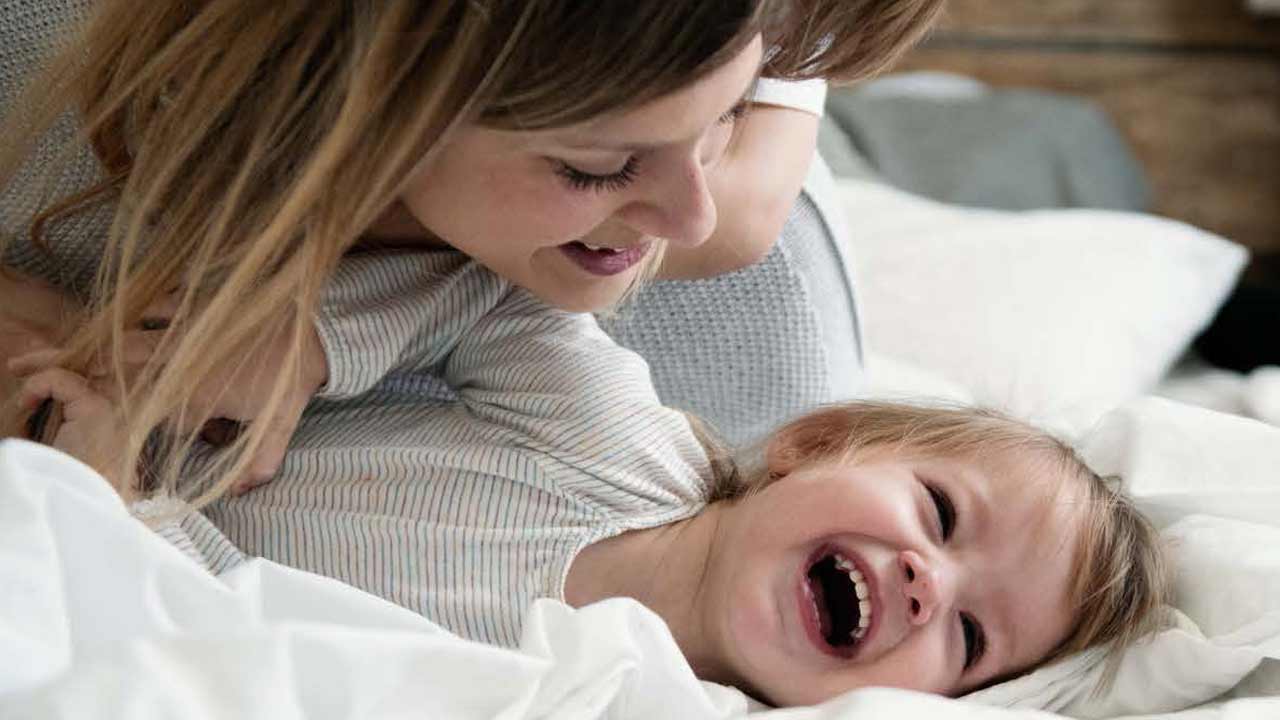Come on Moms, is it really OK for children to hit and bite because they’re only 2?

by Cinda Chatfield, B.A.
There’s a very thin line that exists between understanding your child’s limitations and settling for less that their full capabilities. I’ve been there too, when you have a young child, and limited exposure to other children, it’s hard to know how they rank in terms of behavioral development. Parents ask, “Is my child too young to be discouraged from hitting?” or “She’s so young, she’ll learn to not kick or slap when she’s older, right?”
Recently I worked with a mother and her child, as I was called in to help her work through some perceived delays. It came as no surprise that the majority of issues with the child stemmed from a lack of Parent Education, not developmental delays. She was prone to tantrums, hitting, and biting, all of which was passively allowed by her mother. As I worked with her and discouraged this behavior, her mother insisted that she is too young to understand the concept of “not hitting” or “keeping her hands to herself”. While I encouraged her to learn about sharing, her mother insisted that such lessons were too advanced for her comprehension-level at age 2. I BEG TO DIFFER.
While trying to teach your toddler or infant about Mozart may be precocious, teaching them about sharing and handling themselves in an appropriate way, can and should start at a very young age. Of course, encourage appropriate behavior in a positive way, but you don’t need to wait till an unidentified “magical age” to start.
If a young child hits you for any reason (communication, attention, frustration), they are likely not doing so with mal-intent to hurt you. Children are communicating to the best of their ability albeit, inappropriately, but generally due to a lack of information, skill or awareness as to acceptable communication. Regardless of the function of their aggressive behavior, it does need to be dealt with, strongly and in the moment. This is one of the appropriate times for reactive parenting. Make unwavering eye contact, use a firm “mommy/daddy voice” to say “no hitting,” “quiet hands” and/or “hands to self;” while simultaneously firmly placing your hands on the child’s to stop the action. Later when the heated moment has passed, attempt to identify the function (or trigger) of the aggressive behavior. Once that is determined you will then be able to help guide and/or redirect your child at the onset of their escalation, whether it be hitting, biting, tantruming etc. Most importantly, understand the function of your child’s behavior then later when they are calm explain and demonstrate other options and/or replacement behaviors.
FINAL THOUGHT:
Yes, toddlers exhibit aggressive and destructive behaviors. Hence the term “terrible twos.” Although Mom’s… this does not mean it’s okay and acceptable! In the course of a child’s speech and language development there may be a period of time (for some, longer than others), where a child struggles with finding the verbal language to communicate his/her wants, needs or desires. This is when they find an alternative method of communication. Of course, use your discernment given the situation, but trust me, when it comes to his or her behavioral development, your child is always ready to learn about appropriate ways to seek attention, and respect themselves and others.
About the Author: Cinda Chatfield has worked for over 15 years as a Child Development Specialist, Parent & Family Educator and Advocate. Cinda is the founder of Chatfield & Company, a collective dedicated to creating a harmonious home environment for parents and children.
For more specifics on identifying and responding to inappropriate behaviors, feel free to contact Cinda for guidance and support. Visit: chatfieldandcompany.com, go to blog link, click on “Ask Cinda”




